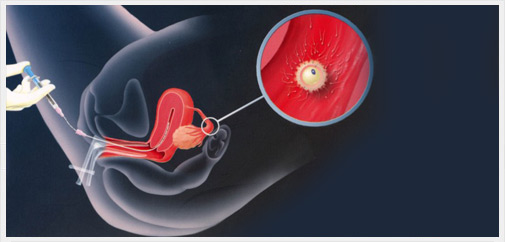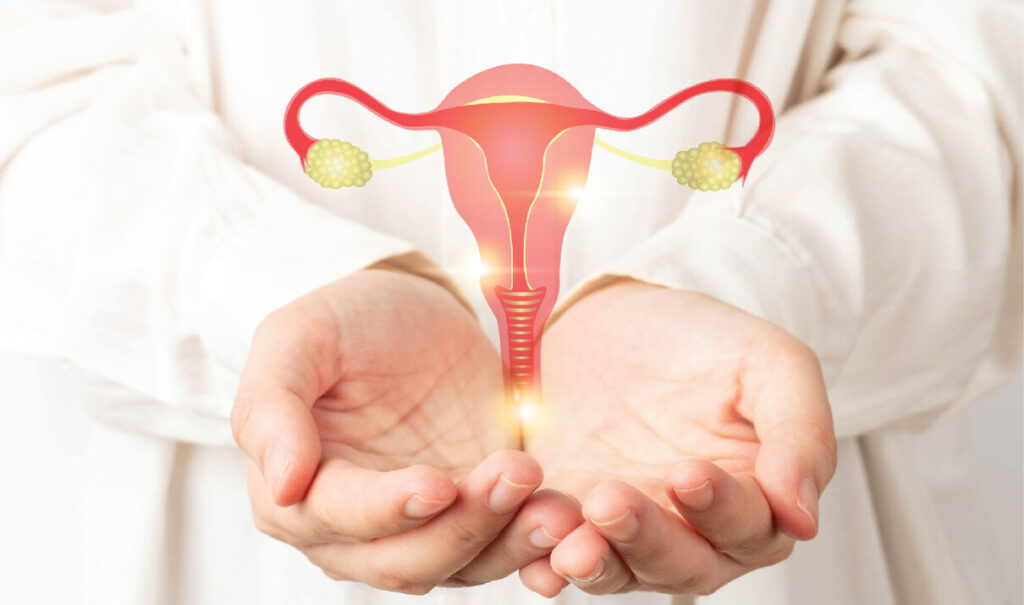Intrauterine Insemination
What is IUI
Intrauterine Insemination is a fertility treatment method. It is a sort of artificial insemination in which the sperm is inserted into the uterus.
Before insertion, the sperms are cleaned and concentrated, then inserted directly in the uterus around the time the ovaries release one or more fertilizable eggs. Earlier methods of artificial insemination involved placing sperm in the vagina. Although this was simpler, it was less effective than the present ways.

When is IUI recommended?
Low sperm count or sperm motility are the most common causes of intrauterine insemination (IUI). However, IUI can also be used to treat the following conditions:
IUI is the most popular method for achieving pregnancy for women who require the use of donor sperm. Before the IUI procedure, donor sperms are taken from a certified laboratory and frozen.
- Undiagnosed Infertility: IUI and ovulation medicines are the most popular initial treatments for undiagnosed infertility.
- Endometriosis-related infertility: For endometriosis-related infertility, medicines are used to obtain high-quality eggs, and IUI is the initial treatment.
- Mild male factor infertility (subfertility): Analysis of your partner's sperm is one of the initial steps in the medical evaluation of infertility. If the semen examination reveals a low sperm count, abnormalities in the shape and size of the sperms, and poor sperm motility, IUI can be utilised to overcome these issues, as preparing the sperms involves distinguishing highly motile and normal sperms from sperms of poorer quality.
- Cervical Factor Infertility: The cervix is located at the base of the uterus. It creates a passageway between the uterus and the vagina. The cervix secretes mucus during ovulation. This mucus aids the movement of sperm from the vagina to the fallopian tubes. If the cervical mucus is overly thick, it will hinder the sperm's trip. IUI can be used to circumvent the cervix and implant the sperm directly into the uterus. This will also boost the quantity of sperm accessible to fertilise eggs.
- In rare instances, a woman may be allergic to the protein composition of her male partner's sperm. When sperm is ejaculated into the vagina, it may produce redness, irritation, burning, and swelling where it contacts the skin. You can use a condom to protect against the symptoms, but it will also prevent conception. Therefore, IUI can be used to effectively prevent severe allergic reactions. Since nearly all of the semen proteins are eliminated before sperm deposition in the uterus.
How should one prepare for the procedure?
IUI involves meticulous planning prior to the procedure:
Your spouse must provide a sperm sample or a vial of donor sperm that may be frozen and processed. Non-sperm components of sperm can sometimes trigger allergic reactions in the female body, causing complications with conception.
The sample will next be cleaned to separate the highly active, normal sperms from the lesser quality sperms and other components found in the sperm.
Ovulation monitoring is critical for identifying the timing of intrauterine insemination. Monitoring the ovulation indications is critical.
You can do this by using a home ovulation prediction kit, which detects the surge, release, or increase in luteinizing hormone (LH) in your body. Transvaginal ultrasonography can be used to see the ovaries and egg development. Human chronic gonadotropin may also be supplied, which stimulates ovulation and causes you to ovulate one or more eggs at the appropriate period.
Choosing the right time: IUIs are usually conducted one or two days after ovulation detection. The timing of your IUI would be determined by your doctor.
What to anticipate
- The usual intrauterine insemination appointment lasts 15 to 20 minutes and is done at a doctor's office or clinic.
- The IUI procedure normally takes one to two minutes and is performed by a physician or a nurse with specialised training.


Prolife
Why Choose
The road to motherhood can be difficult and emotional, but it can be made much simpler with the correct support and advice. Prolife Fertility Centre is a well-known fertility clinic that provides comprehensive IUI treatments to assist couples and individuals in overcoming infertility problems.
Prolife has a team of highly qualified fertility specialists, including obstetricians, gynaecologists, embryologists, and counsellors, who are dedicated to assisting you in realising your dream of becoming a parent.
Prolife is outfitted with the most cutting-edge technology in fertility treatments, such as cutting-edge IVF laboratory systems, state-of-the-art ultrasound machines, and the most up-to-date diagnostic tools.
We recognise that each patient is unique, and we believe that a one-size-fits-all approach to reproductive treatment is ineffective. As a result, we provide tailored care and treatment regimens to fit the unique needs of each patient.
Prolife has a strong history of providing outstanding success rates in IVF treatments. Our professional team is proficient and experienced.
IVF treatments can be expensive, but at Prolife, we think that cost should not be an barrier to creating a family. We provide economical IUI treatments without sacrificing quality so that every patient has access to the services they require

